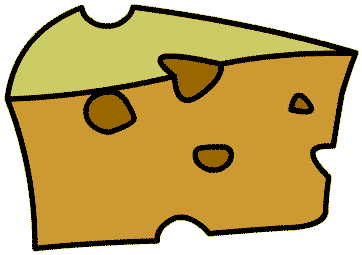




SMART SNACKING
 |
 |
 |
 |
 |
Introduction
Between school, homework, sports, your after-school job, and hanging out with friends, it may feel like there's no time for healthy eating. And when you do stop to eat, it's probably tempting to go the quick and easy route by grabbing a burger and fries, potato chips, or candy.
But it is possible to treat yourself to a healthy snack. In fact, if you have a hectic schedule, it's even more important to eat healthy foods that give you the fuel you need to keep going.
Even if you take time to eat three meals a day, you may still feel hungry at times. What's the answer? Healthy snacks. Snacking on nutritious food can keep your energy level high and your mind alert without taking up a lot of your time.
FILL THE HUNGER GAP Smart snacking can help keep you going until your next full meal. So if you are on the late lunch plan, but eat breakfast at 6 AM, toss some fruit or trail mix into your backpack. This way you will not feel tempted to vending machine snacks between classes. |
Why Healthy Snacking Is Good for You
You may have noticed that you feel hungry a lot. This is natural — during adolescence, a person's body demands more nutrients to grow. Snacks are a terrific way to satisfy that hunger and get all the vitamins and nutrients your body needs.
But you need to pay attention to what you eat. Stuffing your face with a large order of fries after class may give you a temporary boost, but a snack this high in fat and calories will only slow you down in the long run.
To keep energy levels going — and avoid weight gain — steer clear of foods with lots of simple carbohydrates (sugars) like candy bars or soda. Look for foods that contain complex carbohydrates like whole-grain breads and cereals and combine them with protein-rich snacks such as peanut butter or low-fat yogurt or cheese.
Judging Whether Snacks Are Healthy
Choosing healthy snacks means shopping smart. Be cautious of the health claims on food packages. Here are some things to watch out for.
Just because something is "all natural" or "pure" doesn't necessarily mean that it's nutritious. For example, "all natural" juice drinks or sodas can be filled with sugar (which is, after all, a natural ingredient) but all that sugar means they'll be high in calories and give you little nutrition.
A granola bar is a good example of a snack that people think is healthy. Although granola bars can be a good source of certain vitamins and nutrients, many also contain a great deal of fat, including a particularly harmful type of fat called trans fat. On average, about 35% of the calories in a regular granola bar come from fat. And there can be a lot of sugar in granola cereals and bars. Check the Nutrition Facts label on the package to be sure.
Be skeptical of low-fat food claims, too. If the fat has been eliminated or cut back, the amount of sugar in the food may have increased to keep that food tasting good. Many low-fat foods have nearly as many calories as their full-fat versions.
Whatever claims a food's manufacturer writes on the front of the package, you can judge whether a food is healthy for you by reading the ingredients and the nutrition information on the food label.
IN A RUSH? A glass of skim milk or a soy drink with calcium will sustain you far longer than a soda. In fact, a recent study found that adding calcium to students diets may help teen girls keep weight off: Girls in the study who increased their calcium intake by just one glass of milk or a piece of cheese a day weighed up to 2 pounds less than girls who did not get the extra calcium. |
Smart Snacking Strategies
Here are some ways to make healthy snacking part of your everyday routine:
Don't slip up after dinner. Evenings can be a tempting time to indulge in sugary, fatty snacks. If you're really feeling hungry, don't ignore it. Instead, pick the right snacks to fill the hunger gap. Whole-wheat fig bars, rice cakes, or air-popped popcorn can do the trick, as can fruit paired with cheese or yogurt.
Treats to Try
Here are a few healthy snacking ideas:
As with everything, moderation is the key to smart snacking. People who eat regular meals and healthy snacks are less likely to overeat and gain weight than people who skip meals or go for long periods without eating and then scarf down a large order of fries.
It's natural to feel hungrier at certain times — like between a long afternoon of classes and your swim meet. Knowing how much food your body needs to satisfy this hunger is critical. A handful of walnuts make great brain food before sitting down to do that math homework. But a whole bag won't help you add anything — except pounds!
Disclaimer: This information is not intended be a substitute for professional medical advice. It is provided for educational purposes only. You assume full responsibility for how you choose to use this information.
Reviewed by: Mary L. Gavin, MD
Date reviewed: March 2006
Originally reviewed by: Jessica Donze Black, RD, CDE, MPH